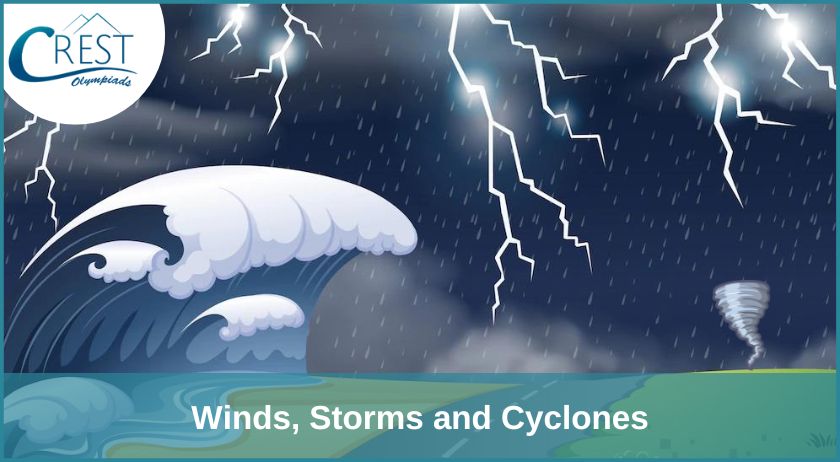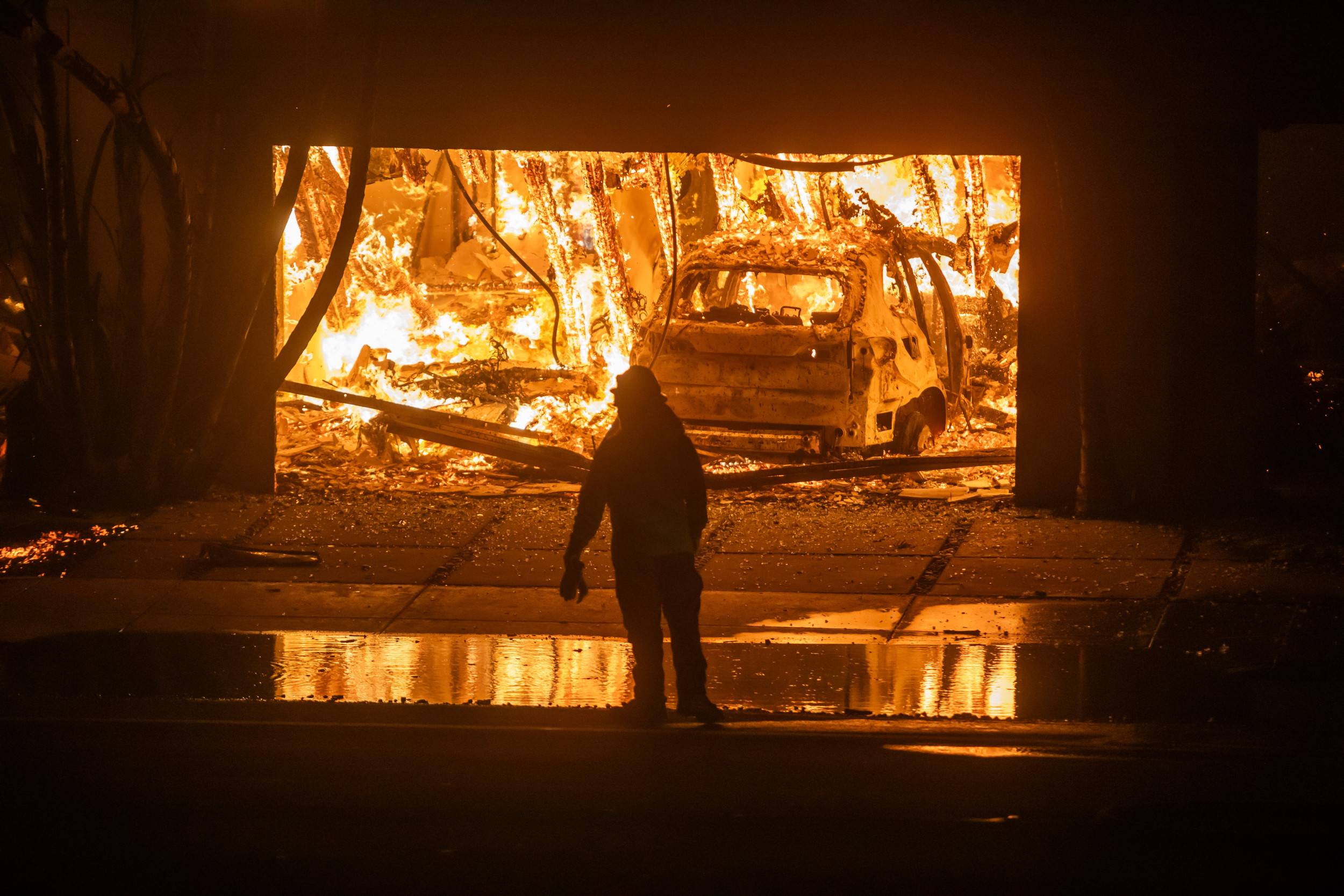Safety First: Preparing For Strong Winds And Severe Storms

Table of Contents
Assessing Your Risk: Understanding Your Vulnerability to Strong Winds and Severe Storms
Understanding your vulnerability to strong winds and severe storms is the first step towards effective preparedness. Your location, the type of housing you live in, and your surrounding environment all play a significant role in determining your risk level.
-
Location: Identify areas prone to flooding, high winds, or storm surges. Coastal areas are often at higher risk of storm surges and hurricane-force winds, while areas with hilly terrain may be more susceptible to landslides. Use resources like FEMA's flood maps and your local weather service's website to assess your specific risk.
-
Housing: Check the structural integrity of your home. Pay close attention to your roof, windows, and doors. Older homes may be more vulnerable to wind damage than newer, more robustly constructed buildings. Consider reinforcing weak points and ensuring proper sealing around windows and doors to prevent water ingress.
-
Surrounding Environment: Assess the surrounding trees and potential hazards. Large trees near your home pose a significant threat during high winds, and loose debris can become dangerous projectiles. Remove or trim any branches that are close to your house.
-
Evacuation Zone: Determine if you live in a designated evacuation zone. Familiarize yourself with evacuation routes and procedures provided by your local emergency management agency.
[Link to local weather service] [Link to FEMA flood maps] [Link to local emergency management agency]
Creating a Family Emergency Plan for Strong Winds and Severe Storms
A well-defined family emergency plan is crucial for ensuring everyone's safety during strong winds and severe storms. This plan should be discussed and practiced regularly so that every family member knows what to do in the event of a severe weather emergency.
-
Communication Plan: Establish a primary and secondary meeting place outside your home and a communication plan, including contact information for all family members. Consider using a designated out-of-state contact person as a central point for communication if local networks are down.
-
Emergency Kit: Pack an emergency kit containing essentials like water (one gallon per person per day for at least three days), non-perishable food, a first-aid kit, medications, flashlights, batteries, a battery-powered radio, and important documents (copies of insurance policies, identification, etc.).
-
Practice Drills: Regular practice ensures your family is prepared and familiar with the plan. Practice your evacuation route, communication protocols, and the use of the emergency kit.
Securing Your Home Before Strong Winds and Severe Storms Hit
Taking proactive steps to secure your home before a storm hits is essential for minimizing damage and protecting your family.
-
Bring in Loose Objects: Bring loose outdoor objects inside, including furniture, decorations, trash cans, and anything that could become airborne and cause damage.
-
Tree Trimming: Trim or remove trees and branches near your house that could fall and damage your property or injure someone.
-
Window Protection: Board up windows or install storm shutters. Consider applying protective film to windows to help prevent shattering.
-
Garage Door Reinforcement: Reinforce your garage door, as these are often a weak point in a home's structure during high winds. Consider adding bracing or using straps to secure it.
-
Vehicle Protection: Protect your car by parking it in a garage or a sheltered area, away from trees and power lines.
[Image or video showcasing home preparation techniques]
What to Do During Strong Winds and Severe Storms
Knowing how to react during the storm is just as crucial as the preparation beforehand.
-
Stay Indoors: Stay indoors in a safe room, away from windows. An interior room on the lowest level, ideally without windows, is often the safest place.
-
Monitor Weather: Monitor weather reports and emergency alerts through your radio, television, or a weather app on your phone.
-
Avoid Hazards: Avoid contact with water and downed power lines. Remember that standing water can be electrically charged.
-
Evacuation: If necessary, evacuate according to your emergency plan. Follow instructions from local authorities.
-
Outdoor Safety: If caught outdoors, seek shelter immediately in a sturdy building or vehicle. Avoid seeking shelter under trees or bridges.
Post-Storm Safety After Strong Winds and Severe Storms
Once the storm passes, caution and careful procedures remain crucial.
-
Check for Injuries: Check for injuries and seek medical attention if needed.
-
Home Inspection: Inspect your home for damage. Report hazards such as downed power lines to your local utility company and emergency services.
-
Debris Removal: Use caution when cleaning up debris; be aware of potential hazards like broken glass, sharp objects, and unstable structures.
-
Documentation: Document any damage to your property for insurance claims. Take photographs and videos as evidence.
-
Patience: Remember to be patient and cautious during the cleanup process. Prioritize safety above all else.
Stay Safe and Prepared for Strong Winds and Severe Storms
Preparing for strong winds and severe storms is not just about protecting your property; it's about protecting your family's safety and well-being. By assessing your risks, creating a comprehensive emergency plan, securing your home, and following safe practices during and after the storm, you can significantly reduce the potential for harm. Don't wait until the next storm hits—start preparing for strong winds and severe storms today! Share this guide with your friends and family to keep everyone safe. Remember to consult your local emergency management agency for specific guidelines and resources relevant to your area.

Featured Posts
-
 Occasionverkoop Abn Amro Analyse Van De Recente Groei
May 21, 2025
Occasionverkoop Abn Amro Analyse Van De Recente Groei
May 21, 2025 -
 Conviction Of Retired Navy Admiral In Half Million Dollar Bribery Case
May 21, 2025
Conviction Of Retired Navy Admiral In Half Million Dollar Bribery Case
May 21, 2025 -
 Moncoutant Sur Sevre Clisson Et Un Siecle De Diversification
May 21, 2025
Moncoutant Sur Sevre Clisson Et Un Siecle De Diversification
May 21, 2025 -
 Rare Ingredients Take Center Stage At Manhattans Forgotten Foods Festival
May 21, 2025
Rare Ingredients Take Center Stage At Manhattans Forgotten Foods Festival
May 21, 2025 -
 The Impact Of The La Palisades Fires Celebrities And Their Lost Homes
May 21, 2025
The Impact Of The La Palisades Fires Celebrities And Their Lost Homes
May 21, 2025
